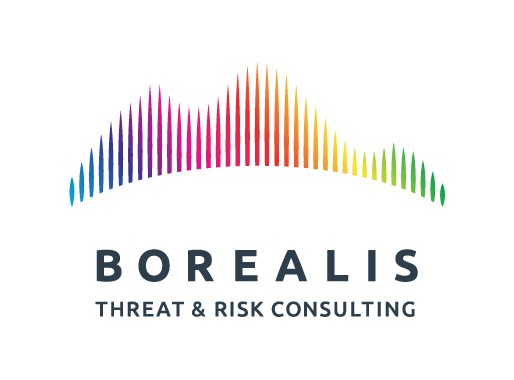We humans have a hard time with the past. Not only do we tend to forget it, choosing to remember only certain aspects (happy ones I hope!), but we also often try to interpret – and at times ram it! through today’s lenses. This tendency is counterproductive and inaccurate and leads to conclusions and judgments that are unhelpful to say the least.
Take the current renaming bandwagon. Everything from road names (Ottawa changed the Sir John A Macdonald Parkway to Kichi Zībī Mīkan because of Canada’s first Prime Minister’s role in the residential school system), to birds (something to do with ‘colonialism’) to even Christmas plants (there is a movement to change the name of the iconic poinsettia (its eponymous ‘founder’ was an American statesman ‘guilty’ of all kinds of things) is on the block now and destined for the dustbin.
I get the desire not to associate things with individuals who are – or rather were in most cases – responsible for truly heinous acts or crimes. I mean, who would name a tree after Hitler or Vladimir Putin? But it seems to me that some of these campaigns lack the seriousness or urgency their organisers claim. And there are other solutions to getting rid of names: we here in the eastern Ontario village of Russell decided to keep the name, which some said ‘honoured’ a slave owner in the 1700s, by simply ‘rededicating’ the name to include ‘all the Russells’ (full disclosure: I was on the committee that came up with the idea).
Getting rid of names and changing history only serves to create gaps in our collective memories. To those who say that certain people and events are painful reminders that need to be wiped out I retort: so we should stop teaching about the Holocaust or the Russian version, the Holodomor in Ukraine under Stalin, to spare others’ feelings?
There is an old saying that goes “those who forget their history are condemned to repeat it” (attributed to Harvard philosopher George Santayana). In other words, we need to remember what happened in the past, learn from it and, if terrible things were done, strive to do better. Imposing modern attitudes on the mindsets and actions of earlier societies and governments and trying to erase them from our collective experiences is not a great approach. It is much more beneficial to try to understand why things were done they way they were oh so long ago.
Take a recent story about the activities of the Dutch intelligence agency BVD (now called the AIVD: a very good service in my opinion) in the aftermath of WWII. According to the Netherlands press, that organisation monitored and investigated an undisclosed number of Jewish Holocaust survivors in Amsterdam for decades as it thought they were ‘extremists’ and hence posed a threat to the nation.
The reaction to this news has been one of horror. How could a spy service subject those who lived through Germany’s death camps to attention and scrutiny? Had they not suffered enough? Was this nothing but yet another form of anti-Semitism? Here are some quotes: “It defies any idea of civilization. That cannot be justified, not even with time,”; “What’s extremist about a bunch of old Jews who came out of the camp?”; “All those names you read are people who have been through so much. Almost all of them have lost their families. And yet they were monitored as enemies of the State.”
But wait, there is more to this story. The Dutch authorities had determined that one of the societies created in 1956 by victims as a special interest group for those who survived the Holocaust, the Dutch Auschwitz Committee, may have had links to the Communist Party of the Netherlands. This was deep into the Cold War (remember that, or is this episode of conflict to be forgotten too?), a particularly nasty part of recent history.
While this outpouring of anger is to be expected, the ignorance of the significance of the threat from Western communists and their Soviet minders is not. The period from the 1930s to the 1990s was one of global insecurity as both sides, East and West, sought to push their own agendas and ideas and each held an ace card: MAD (mutually assured destruction, i.e. nukes). That a Western intelligence agency monitored citizens, yes even Holocaust survivors, to determine links to the ‘enemy’ is natural. That is what security services do. If there are grounds to keep investigations going then go on they do. If not, they are dropped (no one, well except the East German STASI, has the resources to look at everyone indefinitely).
To judge the BVD for what it did to Dutch Jews in the 1950s and even up to the 1980s through today’s glasses is rose-coloured indeed (rose, red, communism, get it?). Even if in retrospective the Soviet threat is now deemed by some to have NOT been as serious as once portrayed, we cannot retroactively blame officials for carrying out actions based on what they knew AT THE TIME. You know, hindsight, 20-20 and all that.
By the way, when I entered the Canadian intelligence community in July 1983 (with CSE – Communications Security Establishment, our signals intelligence (SIGINT) agency) the vast majority of my colleagues (not me) were dedicated to monitoring the Soviet Union. That was the day’s predominant threat and hence it made sense to allocate resources in that direction. Everything changed after 1989, although the dangers of Putin’s Russia (recall he was a Soviet KGB agent) give one pause to wonder whether we downed tools too early.
That the Dutch subjected some of its citizens to scrutiny to find out what menace, if any, they posed during the Cold War is a fascinating look back at a different era and something we can learn from. Not one we need to outright condemn.

